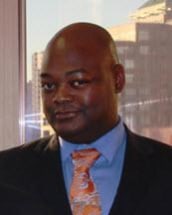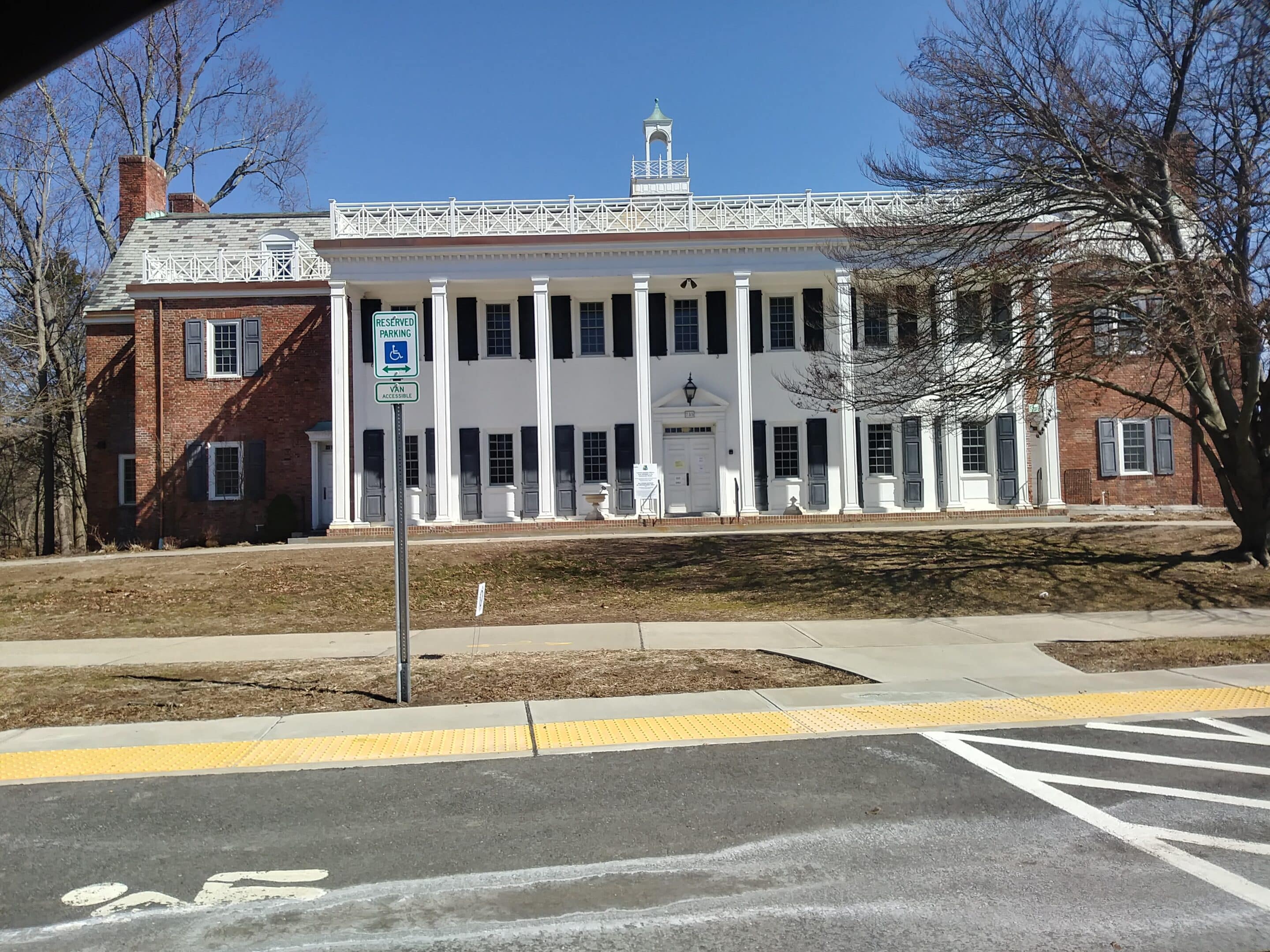The election will take place at the Longmeadow Community House.
Reminder Publishing file photo




LONGMEADOW — It is town election season and in Longmeadow, five candidates submitted papers to run for two seats on the Select Board. Since 1988, races with more than two candidates per seat require a preliminary election to be conducted to whittle down the field.
The four candidates that receive the most votes will appear on the Annual Town Election ballot.
Two incumbents are seeking to retain their seats: Mark Gold and Dan Zwirko. Gold has been on the board since 2009, when he filled then-Select Board member Brian Ashe’s term after he was elected as a state representative, while Zwirko is finishing his first three-year term.
Maury Garrett Jr., Shelly Maynard-DeWolf and Salvatore Anzalotti III are each hoping to win one of the seats.
Garrett, Anzalotti and Maynard-DeWolf had similar reasons for running for the board. Both Maynard-DeWolf and Garrett are parents with children in Longmeadow schools and cited their children as a reason for running for Select Board.
“The reason I’m running is because I want to give back” and “help preserve our community for our children,” said Maynard-DeWolf. She moved to Longmeadow from Springfield 16 years ago when she and her husband were looking for “a great place to raise a family.” Referring to the town’s schools and amenities, including sidewalks that allowed her to feel safe letting her children walk and ride their bicycles home from school, she said, “I love our community.”
Similarly, Garrett said, “I want to make sure that their community is as strong, stable and safe as I can.” He also said he has always been passionate about serving the community and has done so in many governmental and civic positions. Garrett said, “Longmeadow is at an important fiscal crossroads, and I am looking to take on a greater, more direct role in seeing the town through these upcoming challenges.”
Anzalotti is a Longmeadow native who moved back to town after living in Agawam for a time. He said, “I wanted to contribute something to my community. There’s a lot of pride in Longmeadow. There’s an aesthetic that is important.”
Garrett added, “I was particularly motivated to increase my involvement in Longmeadow government because through all the turmoil going on at the national level, I began asking myself what more I could do personally, to help improve, safeguard and stabilize my own local community.” Working on local communities and their issues is the best way to improve the country, he said. “I believe that building a Longmeadow that is rooted in love and respect for our neighbors, caring for our children and elderly and fostering close, rich and diverse relationships within our town is the best way to protect Longmeadow and ensure that we remain prosperous and strong as a community for years to come.”
Experience
Maynard-DeWolf said she feels “uniquely qualified” to serve on the Select Board due to the combination of professional experience. She works in the financial private sector for Empower, a retirement investment firm. However, she was employed with the city of Springfield for 11 years, including while the city was in receivership. During that time, she said she worked with all the city’s departments to make a financial plan to move Springfield forward. She said she excels in bringing people together to affect change and make progress.
“I really enjoyed working for the community I lived in. I really enjoyed municipal government,” Maynard-DeWolf said.
Garrett has served on the town’s Finance Committee for a decade in various roles, such as being the committee’s liaison to the Longmeadow Tax Ceiling Task Force and to the School Committee. “I am also president of Longmeadow Youth Football and vice president of the Longmeadow Football Inc. Board” and has served on the board for the Longmeadow Little League and the board of Longmeadow Baseball Association.
Garrett also said, “I am an attorney practicing in Connecticut and have extensive experience in mediation, arbitration, conflict resolution, insurance, property and contract matters. I utilize that experience with me as a member of the Finance Committee and would do so as a member of the Select Board.”
Anzalotti feels that he can relate to Longmeadow’s business owners, as he owned and managed Agawam Family Cinemas from 1996 to 2014. “As a small business owner, I was dealing with what was going on at the time in the town, the arts community; dealing with taxes, with neighbors.”
Like Maynard-DeWolf, Anzalotti worked for the city of Springfield, in this case as associate city solicitor. He also has experience as a solo lawyer working with juveniles.
“My whole career has been in the public sector,” Anzalotti said. “When working for Springfield, I was an attorney for the License Commission, so I’m aware of the Open Meeting Law and how it works.”
Difficult decisions
Members of the Select Board must make difficult decisions that affect the entire town. Gold said the most difficult decision he has made was holding out for a higher annual payment in the surrounding community impact agreement with MGM Springfield. He said there were several parties “urging the board to reduce our final request, some urging us to take the same offer as the other surrounding communities.”
He said that in the face of arbitration, “I was able to lead the Select Board to maintain our request for a $250,000 per year settlement,” instead of accepting the offered $50,000. Ultimately, the arbitrator sided with the town. “It was a singular situation of holding to what I felt was right to do,” Gold said.
Zwirko recalled, “Early on in my first term, it was eye-opening to learn that our town infrastructure had been neglected for years, and maintenance had been deferred across town. It was difficult to have to support an increase in our water and sewer rates to help pay for needed infrastructure improvements, when these issues should have been addressed more responsibly over the past several years.”
The incumbents also reflected on what they are most proud of accomplishing while on the board. In Zwirko’s first term, he said some of the items he is most proud of include voting for an updated school literacy program and “coordinating two massive town cleanups and a Blueberry Elementary School painting project with the Hampden County Sheriff’s Department, which saved the town tens of thousands of dollars.” He said, “I am always thinking of more efficient ways of doing things, which led me to introduce the first mobile application for our town, to modernize and enhance our communications with the community.” Zwirko said, “Being a strong supporter and advocate for our town’s seniors and veterans,” he has been “continuously voting in favor of events and services that support these two important groups.”
For Gold, who had a hand in moving the town to automated water meter reading and resetting the sewer rate to what he described as “a more equitable system,” his proudest accomplishment is the purchase of the town’s streetlights and “converting them to high efficiency LED systems. This project, undertaken with the approval of the Select Board but entirely on my initiative and combined effort with Town Manager Lyn Simmons, continues to save the town over $500,000 per year.” He remarked that the savings are “tremendous,” particularly when the town has a tight budget, as it will this year. The “significant environmental benefit” of LED lights, “makes this achievement all the more gratifying,” he said.
Gold also pointed to his participation in three contract negotiations with trash hauling companies. “My training and experience as part of a purchasing group in the private sector enabled me to bring my years of experience to the town’s team of negotiators. My participation in the trash hauling contract process significantly advanced the town’s negotiating capability, not because Longmeadow’s purchasing team is weak, but because their negotiation skills are limited.”
Challenges ahead
Maynard-DeWolf sees a couple of major challenges facing Longmeadow. The first involves financial planning. As a “big believer” in strategic plans, she said the town needs to create one to “ensure we funnel our money to the right places” and that “Longmeadow remains a vibrant town.” It should be noted, in 2024, the town completed its Climate Resilient Long-Range Plan, which acts as an overarching framework for the town direction in terms of land use, zoning and other broad categories. The document has since won awards within the planning industry. Strategic plans are often an array of more specific steps that will help people meet a long-range plan’s goals.
Another major challenge Maynard-DeWolf sees involves communication between the town boards and departments and the residents. “How do we engage with residents, so they can help keep our community amazing?” she asked. She also said there are opportunities to improve representation on boards and committees and “reflect the residents that live in town.” To reach that goal, she said the town would need to make residents aware of how they can become involved.
The condition of Longmeadow roads is one of the most critical things Anzalotti sees facing the towns. He said Longmeadow’s streets are worse than those in Springfield or surrounding communities. He also said the schools are deteriorating and need to be addressed. Both problems are the result of deferred maintenance, he said.
Anzalotti said funding for such projects may be found through efficiencies, but it is unlikely in a town the size of Longmeadow. He said funding through the general fund may be “a bitter pill to swallow” for taxpayers. At the same time, he said balancing the budget and maintaining a surplus is important.
“Longmeadow’s infrastructure, including roads and deferred maintenance on our municipal buildings, facilities [and recreation fields] are a major concern. I support and am focused on supporting our DPW to address these pressing needs,” Garrett said.
“Senior citizens are intimately tied to Longmeadow’s “fiscal future,” Garret said, describing them as, “residents who consume the least amount of resources relative to the tax revenue they provide the town of Longmeadow.” Meanwhile, he sees the town’s schools “an engine” bringing new residents to town and keeping property values high.
“Making sure our schoolchildren are receiving the best possible education is, in turn, the key to keeping Longmeadow attractive for new residents seeking to move here.” As such, he supports the new middle school project and said, “making sure this is executed in a fiscally sound manner is of critical importance.”
Zwirko said, “Given a second term, I’m looking forward to seeing through the large investments we have put in place to improve our roads and town infrastructure. I’m also excited to continue to support the new middle school project as it moves closer to being shovel ready and to be at the table as we start to consider opportunities for the best use of the land at the old [Glenbrook Middle School] site. I also look forward to continuing the rollout of municipal fiber across town to provide better services for our residents and a new revenue stream for Longmeadow, rather than continuing to support monopolies like Comcast.”
Gold is anticipating lower federal and state funding and said the town will need to operate within those constraints. “Continuing to resolve the financial issues of the town within the confines of Proposition 2½ will be an even greater struggle in the next three years as it has been in the past 16 years.” He said, “We will have to do things smarter and perhaps in some different ways.”
Another issue Gold expects to see is “advanced solar systems” that are “targeted to provide much needed alternative revenue to Longmeadow.” He said the town has already taken steps to prepare for this and “make this a financially viable alternative for the town. I am also looking to support more ways that the town can save money for residents,” including lowering electric bills through municipal aggregation. “There is much to do to assure that our residents continue to enjoy the quality of life that typifies Longmeadow.”
The preliminary election is expected to cost up to $10,000, according to Assistant Town Manager Michael Barbieri. Election costs include ballot printing, overtime for police and staffing. A question will appear on the May 13 Town Meeting warrant proposing the elimination of preliminary elections. In the meantime, this year’s preliminary election will take place on May 6, with voting at the Community House between 7 a.m. and 8 p.m.
Editor’s note: Salvatore Anzalotti III declined to provide a photo when requested by Reminder Publishing.




You must be logged in to post a comment.